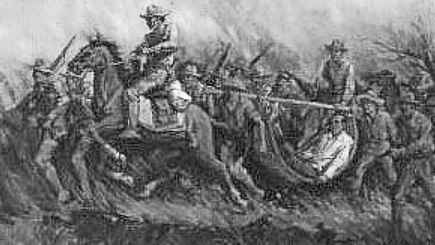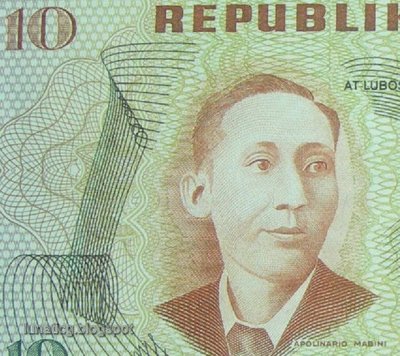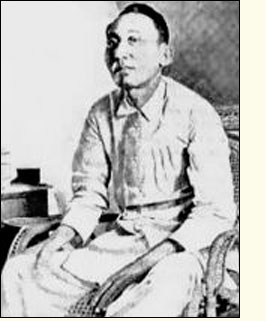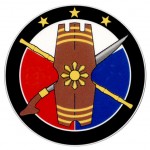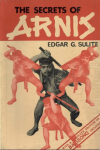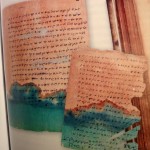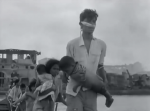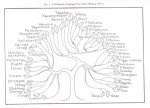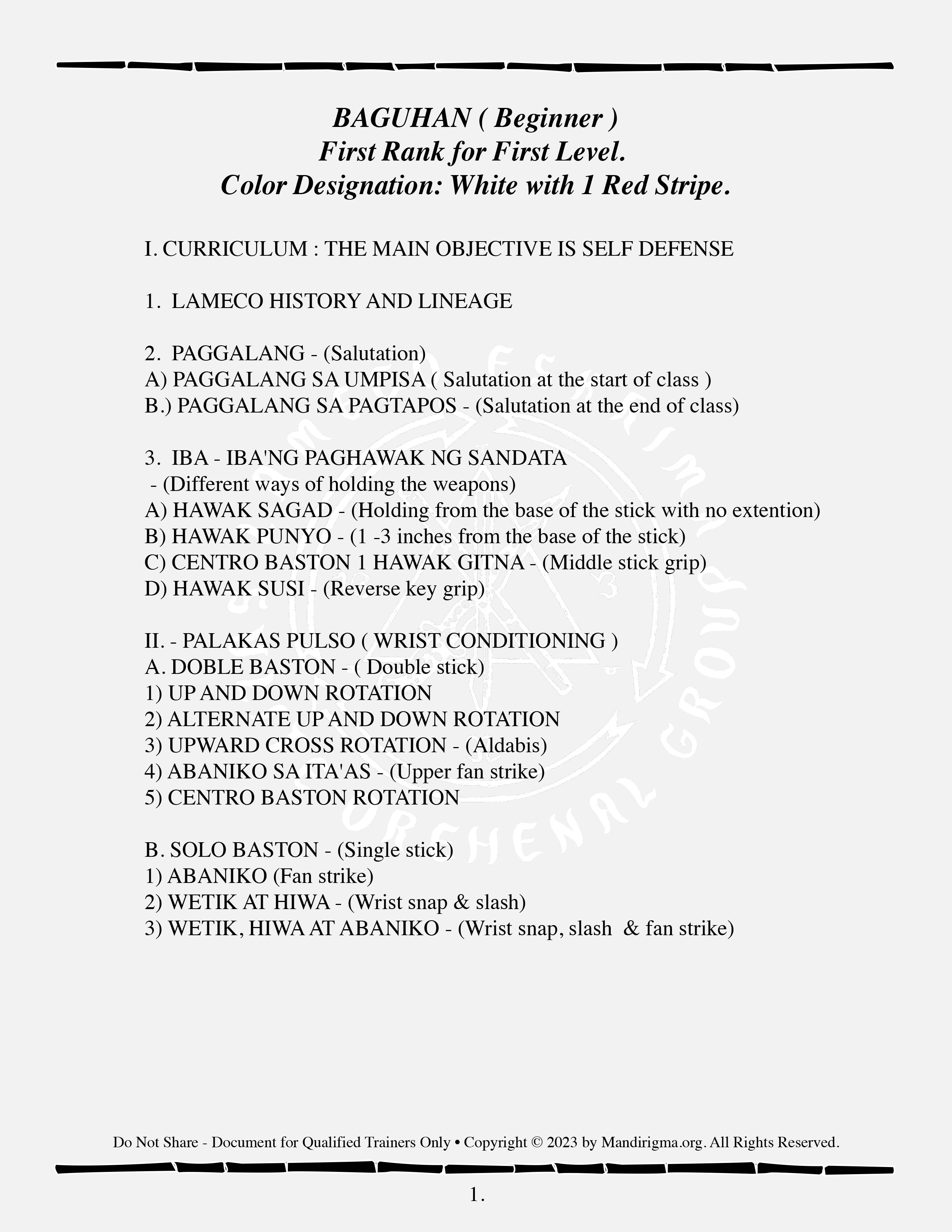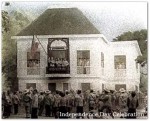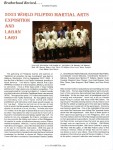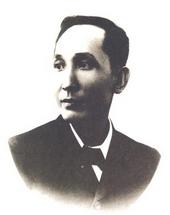
Apolinario Mabini
Hero of the Philippine Revolution
Conscience of the Philippine Revolution
the Sublime Paralytic
key adviser of Emilio Aguinaldo
proposed the first constitution of the Philippine Republic
born July 22, 1864 Barrio Talaga, Tanawan Batangas to Inocencio Mabini, Dionisia Maranan
died May 13, 1903
It was immediately before the proclamation of independence that a young man was brought before Aguinaldo as his adviser. He was Apolinario Mabini. Born of very poor parents, Inocencio Mabini and Dionisia Maranan, in Talaga, Tanawan, Batangas. Mabini studied in a school in Tanawan, then conducted by a certain Simplicio Avelino. Much later, he transferred to a school conducted by the famous pedagogue, Father Valerio Malabanan. He continued his studies at the San Juan de Letran and at the University of Sto. Tomas where he received his law degree in 1894.
His dream to defend the poor led him to forsake the priesthood, which his mother wanted him to take. Early in 1896, he contracted an illness, probably infantile paralysis, that led to the paralysis of his lower limbs. When the revolution broke out the same year, the Spanish authorities, suspecting that he was somehow involved in the disturbance, arrested him. The fact, however, that he could not move his lower limbs showed the Spaniards that they had made a mistake. He was released and sent to the San Juan de Dios Hospital.
Mabini, it must be noted, was not entirely free from nationalistic association, for he was a member of Rizal’s La Liga Filipina and worked secretly for the introduction of reforms in the administration of government. In 1898, while vacationing in Los Baños, Aguinaldo sent for him. It took hundreds of men taking turns at carrying the hammock he was in to bring Mabini to Kawit. Aguinaldo, upon seeing Mabini’s physical condition, thought that he must have made a mistake in calling for him to help him in his work. What could a man in such a condition do to help him?
But when Mabini spoke, Aguinaldo’s doubts vanished. There was firmness in the sick man’s voice, and Aguinaldo decided to make him his trusted adviser. From then on, it was Mabini who stood behind Aguinaldo. Envious enemies called him the “Dark Chamber of the President”, but his admirers called him the “Brains of the Revolution”.
History of the Filipino People. Teodoro A. Agoncillo
—
Apolinario Mabini
Born of a poor family, Apolinario Mabini was always studious. He was always sad and silent and liked to sit alone to meditate.
Mabini studied at San Juan de Letran where he got his Bachelor of Arts degree and Professor of Latin. He also finished Law. He was a spokesman of the Congress, and a notary public.
In early 1896, he contracted a severe fever which paralyzed him for the rest of his life. He was later called the Sublime Paralytic.
Mabini was most active in the revolution in 1898, when he became the chief adviser of Gen. Aguinaldo during the revolution. He drafted decrees and proposed a constitution for the Philippine Republic. He made the plans for the revolutionary government.
In 1899, he was captured by the Americans but was later set free. In 1901, he was exiled to Guam but returned to the Philippines in 1903 after agreeing to take an oath of allegiance to the US. He took his oath on February 26, 1903 before the Collector of Customs.
On May 13, 1903, he died of cholera in Manila.
Excerpts from Talambuhay ng mga Bayani by Rene Alba
—
Apolinario ‘Lumpo’ Mabini y Maranan (July 23, 1864 — May 13, 1903)
Apolinario ‘Lumpo’ Mabini y Maranan (July 23, 1864 — May 13, 1903) was a Filipino political philosopher and revolutionary who wrote a constitutional plan for the first Philippine republic of 1899-1901, and served as its first prime minister in 1899. In Philippine history texts, he is often referred to as “the Sublime Paralytic”, and as “the Brains of the Revolution.” To his enemies and detractors, he is referred to as the “Dark Chamber of the President.”
Early life of Apolinario Mabini
Mabini was born on July 23, 1864 in Barangay Talaga in Tanauan, Batangas. He was the second of eight children of Dionisia Maranan, a vendor in the Tanauan market, and Inocencio Mabini, an unlettered peasant.
Mabini began informal studies under his maternal grandfather, who was the village teacher. Because he demonstrated uncommon intelligence, he was transferred to a regular school owned by Simplicio Avelino, where he worked as a houseboy, and also took odd jobs from a local tailor – all in exchange for free board and lodging. He later transferred to a school conducted by the Fray Valerio Malabanan, whose fame as an educator merited a mention in José Rizal’s novel El Filibusterismo.
In 1881 Mabini received a scholarship to go to the Colegio de San Juan de Letran in Manila. An anecdote about his stay there says that a professor there decided to pick on him because his shabby clothing clearly showed he was poor. Mabini amazed the professor by answering a series of very difficult questions with ease. His studies at Letran were periodically interrupted by a chronic lack of funds, and he earned money for his board and lodging by teaching children.
Mabini’s mother had wanted him to take up the priesthood, but his desire to defend the poor made him decide to take up Law instead. A year after receiving his Bachilles en Artes with highest honors and the title Professor of Latin from Letran, he moved on to the University of Santo Tomas, where he received his law degree in 1894.
The 1896 Revolution
Believing that the Reform Movement still had a chance to achieve success, Mabini did not immediately support the revolution of 1896. When José Rizal was executed in December that year, however, he changed his mind and gave the revolution his wholehearted support.
In 1898, while vacationing in Los Baños, Laguna, Emilio Aguinaldo sent for him. It took hundreds of men taking turns carrying his hammock to portage Mabini to Kawit. Aguinaldo, upon seeing Mabini’s physical condition, must have entertained second thoughts in calling for his help.
Mabini was most active in the revolution in 1898, when he served as the chief adviser for General Aguinaldo. He drafted decrees and crafted the first ever constitution in Asia for the First Philippine Republic, including the framework of the revolutionary government which was implemented in Malolos in 1899.
Later life and death
He also joined the fraternity of Freemasonry.
On December 10, 1899, he was captured by Americans at Cuyapo, Nueva Ecija, but was later set free. In 1901, he was exiled to Guam, along with scores of revolutionists Americans referred to as ‘insurrectos’ and who refused to swear fealty to imperialist America. When Brig. Gen. Arthur C. MacArthur, Jr. was asked to explain by the US Senate why Mabini had to be explained, the following was cabled:
“ Mabini deported: a most active agitator; persistently and defiantly refusing amnesty, and maintaining correspondence with insurgents in the field while living in Manila, Luzon… ”
Mabini returned home to the Philippines in 1903 after agreeing to take the oath of allegiance to the United States on February 26, 1903 before the Collector of Customs. On the day he sailed, he issued this statement to the press:
“ After two long years I am returning, so to speak, completely disoriented and, what is worse, almost overcome by disease and sufferings. Nevertheless, I hope, after some time of rest and study, still to be of some use, unless I have returned to the Islands for the sole purpose of dying. ”
To the chagrin of the American colonial officials, however, Mabini resumed his patriotic work of agitating for independence for the Philippines soon after he was back home from exile. On May 13, 1903 Mabini died of cholera in Manila, at the age of 38.
